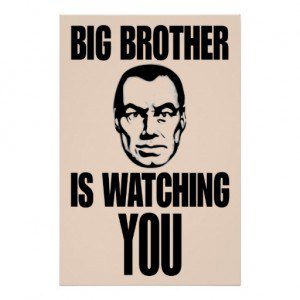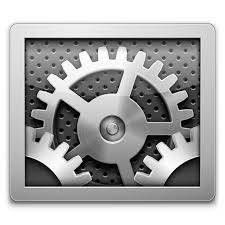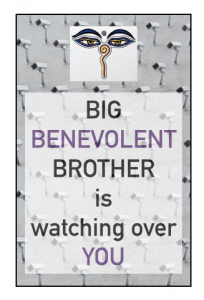Unless you have been living in a cave, you now have an idea to what extent big brother is watching over you. Every day, there is worrying talk or media coverage around cyber-spying, cyber-criminality and privacy incursions, not to mention the data gathering by Google, Facebook and, even, Secret (the supposedly anonymous ‘social network’ – read the story in Wired). As a result, it is easy to start feeling neurotic. Indeed, a recent survey published by eMarketer, shows how prevalent distrust has become on social networks. Among US internet users “…57% had little or no trust at all in social media sites like Facebook or Twitter.” With that said, we know that social media is a growing part of the job recruitment process (above and beyond Linkedin) and a Kaplan Test study showed that social media is a part of the recruitment process for many universities:
The percentages of college admissions officers who say they have Googled an applicant (29%) or visited an applicant’s Facebook or other social networking page to learn more about them (31%) have risen to their highest levels yet, according to Kaplan Test Prep’s 2013 survey of college admissions officers*. When Kaplan first began tracking this issue in 2008, barely 10% of admissions officers reported checking an applicant’s Facebook page. Last year, 27% had used Google and 26% had visited Facebook — up from 20% and 24%, respectively, in 2011.
So, for college-applying children (not to mention all people who need to find/keep a job), the message could not be clearer: clean up your online profile. How?
Keeping a clean online profile
What does it mean to keep a clean online profile? Some might argue: not having a social media presence at all. I disagree. First, I believe that social media is a fabulous way to stay connected around the world (including to your grandparents who might be living far away), to learn and to have fun. Secondly, if you aren’t online in today’s world, it can be taken perversely as a sign you might have something to hide. Keeping your private and intimate thoughts and activities to yourself is 100% prescribed. For the rest, you must define your personal line. And, there are some key things about which you need to take care. As a rule of thumb, I like to say: post nothing you would not want to show to your grandmother. {Tweet this!} Here is a quick checklist of elements to watch out for:
 Settings – this should be your first port of call. On Facebook, check the settings “privacy” tab to make sure you are sharing what you want with whom you want
Settings – this should be your first port of call. On Facebook, check the settings “privacy” tab to make sure you are sharing what you want with whom you want- The tab “ABOUT” should be spic & span and accurate
- Curate photos of yourself. If you are tagged in a photo, check to make sure it suits you
- In your posts with images and videos – think twice before posting and make sure that your ethics are in check
- Text – read over your texts to find spelling mistakes
- If you add a link, make sure it’s the right one (and that you have read the article to which you are linking)
- Your interests and what you “like” can also be reviewed. If you find something you liked, but where the ethics are questionable, at least, it’s easy to remove the evidence (i.e. Un-like it!). On Facebook, you can double-check to see your ‘like” activity. Copy and replace with your username the entire link: http://www.facebook.com/YOURUSERNAME/allactivity?privacy_source=activity_log&log_filter=likes
If it’s difficult enough to have a singular profile up to date and well-groomed, it is a whole other ballgame to keep up multiple profiles over an extended period of time. So, what to do?
Big (e)Brother
The key to having a great social media presence? I suggest you actively look for (and thank) anyone in your circle who looks out for you. A big brother (IRL) can be true savior. Having a Big eBrother who regularly follows and reads your online posts, can be a great ally in helping to alert you about your errant items. So, the concept I thought I would put forward in this post is: find your benevolent big brother! In other words, who’s looking out for you online? In the world of cyber civilians, digital isolation and individualism, there is a very important role to be played by your family, close friends and digital allies. What you want is a person (or persons) who is vigilant enough to alert you when you repost a hoax, make a spelling mistake, or when your email account has been spammed. Another way to qualify a good and benevolent big brother is someone who can provide you with the tough love feedback. Here are three reasons why you need to have a benevolent big brother:
- he/she will read your content with a distant eye and send you critical feedback
- he/she will be using other devices and browsers, to make sure the formating and readability is ok across the Internet
- he/she will help to amplify your good posts (assuming that’s what you want!)
How do find a big eBrother? If you are a brand or big enterprise, you make sure that your agency of record is tasked on this as part of their roles and responsibilities. Internally, this should be something the Communications department should be doing (i.e. on behalf of a tweeting boss). For individuals and SMBs, the trick is finding people in your eco-system who will contribute to your good online standing. If you really like the idea of having a benevolent online big brother, I suggest you start by looking out for others first. {Tweet this!}
What goes around, comes around! #benevolentbigbrother {Tweet this!}
The friendly CCTV
The CCTV is controversial notably because of the issue of trust. Who runs the camera and owns the data? The intention of the CCTV is, nominally, about protection and security. Privacy is the price being paid. All the same, a big brother isn’t all bad, despite what Orwell would have you believe. I close with a feelgood ‘big brother” video, created by “LoveEverybody.org” in 2012, which captures a slew of good deeds captured unwittingly on CCTV.













